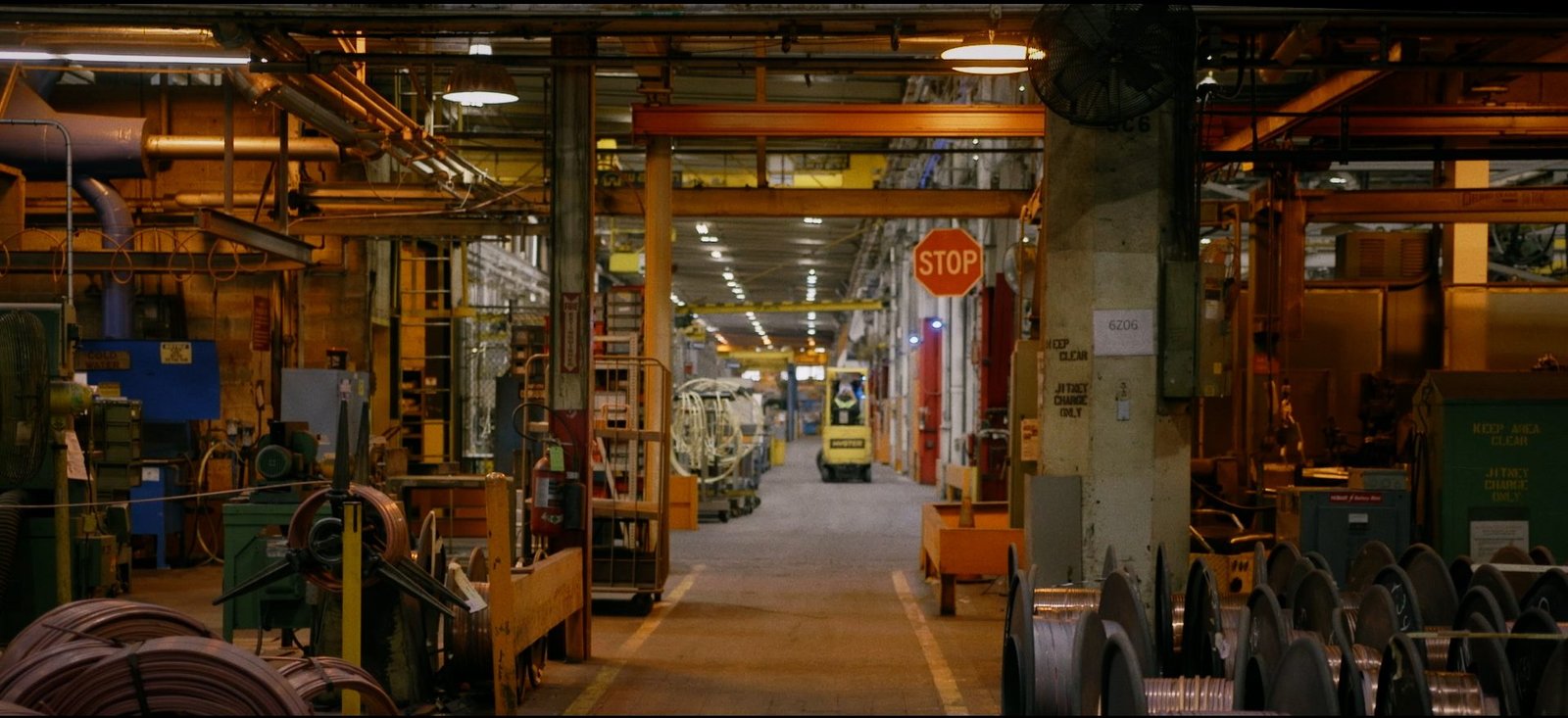Published
1 year agoon

In a time when the United States is grappling with deep political polarization, social unrest, and economic upheaval, The American Question arrives as a poignant exploration of the cracks in the nation’s identity.
Directed by James Kicklighter and narrated by political analyst Guy Seemann, the documentary embarks on an ambitious eight-year journey to uncover the historical, economic, and cultural forces behind America’s divisions. Guy Seemannhas lived in Isreal where his mum immigrated from, for over 12 years but grew up in New Jersey. At the age of 25 he started working in politics, he felt good government could make fewer people feel isolated. In this film, he serves more like a conscience that asks all the right questions and steers all the conversations in the right direction.
In many ways, what makes ‘The American Question‘ stand out for me is its blend of intellectual rigor and emotional depth. The filmmakers dive into swing-state communities in Pennsylvania and Michigan, speaking to a diverse array of individuals. From academics and community workers to everyday citizens who all have strong opinions on the current state of America.
These voices, candid and often impassioned, paint a vivid picture of a society caught in a downward spiral, wrestling with mistrust of institutions, fractured communities, and an uncertain future.
The film begins by contextualizing America’s current struggles with historical parallels. The first voice we hear when the film starts is that of Amy Chua whose comparison of the U.S. to the Mongol Empire sets a sobering tone, underscoring how once-cohesive nations can unravel.
Then there is archival footage of past presidents delivering speeches that seemed to have served as a reminder of the warnings America has long ignored. This historical foundation is layered with on-the-ground observations, as Seemann and his team travel to Erie, Hazleton, and Detroit. Cities that have seen their great share of America’s challenges.
In Erie, conversations with residents reveal frustrations with the welfare system, disillusionment with politicians, and a pervasive sense of unfairness. Hazleton, with its demographic transformation due to a large influx of Hispanic residents, highlights the tensions surrounding immigration. Meanwhile, Detroit serves as a case study in resilience amidst decline, where local entrepreneurs and community leaders strive to foster change despite systemic neglect.
The documentary doesn’t just diagnose problems, it actively seeks solutions. Experts like Colin Woodard and Yuval Levin provide sharp analyses of economic and cultural divides, while voices like Tania Israel suggest actionable steps, such as fostering better dialogue and creating national service programs to bridge divides. These proposals, while ambitious, are grounded in a sense of urgency that resonates throughout the film.
Visually, ‘The American Question’ is well thought through as well. Its seamless editing interweaves personal stories, archival footage, and expert commentary, creating a narrative that flows effortlessly. The use of music, imagery as well as some informative graphics provides moments of reflection, allowing viewers to absorb the gravity of the issues being discussed. Guy Seemann’s voiceover serves as a thoughtful guide, connecting the dots between complex ideas and real-world implications. He also appears onscreen and makes the interactions between the other talking head subjects more engaging.
The documentary also captures the impact of the impact of the COVID-19 pandemic. It also highlights that the divisions and mistrust the pandemic caused are still prevailing in the present. As the film ends, Guy Seemann suggests some steps to help depolarize America. The most pivotal for me would be the fourth step which is; ‘Avoid relying on cultural narratives from commentators and social media’. This I strongly believe would go a long way to make things better.
However, the film is not without its minor flaws. At times, the narrative feels repetitive, and certain segments feel like they stray too far away from the central theme. Yet, these shortcomings are overshadowed by the depth of content and the sincerity of its execution.
‘The American Question‘ succeeds not just as a documentary but as a conversation starter. It doesn’t pretend to have all the answers but instead encourages viewers to ask themselves. What can we do to heal? The film’s greatest strength lies in its ability to humanize complex issues, reminding us that behind every statistic is a story, and behind every divide is an opportunity to rebuild.
For anyone seeking to understand the roots of America’s fractures and the possibilities for reconciliation, this documentary is a must-watch. It is both a sobering reflection of where we are and a hopeful blueprint for where we could go.
I will score ‘The American Question‘ 3.5 out of 5 stars.
Second on my list of addictions is Movies.. the only thing I could possibly love more is my Dearest Waakye lol. Nothing else does a better job of reminding me that ANYTHING is possible with the right amount of effort. I have great eye for details and flaws in scripts. Shallow scripts bore me. I am an avid reader. Your everyday Mr Nice guy. Always the last to speak in a room full of smart people. Half Human, half Martian but full MOVIE FREAK.














